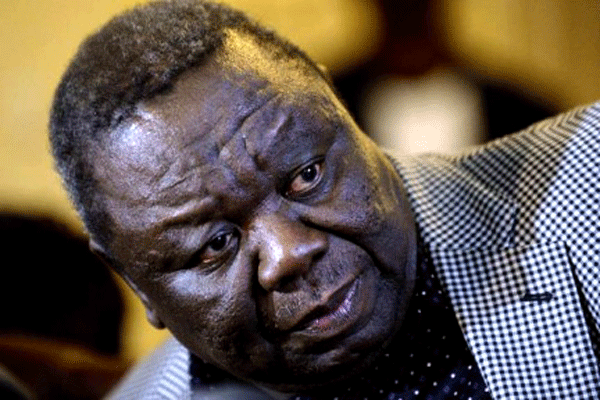
By learnmore Zuze
Kenya’s Chief Justice David Maraga could not have said it any better: “The greatness of a nation lies in its fidelity to its Constitution and strict adherence to the rule of law.” Inverted, that statement translates to: “The failure of a nation to progress is to be found in its exaltation and veneration of man as to grant them a deity status and strict adherence to a single centre of power.”
This, among many others, is Africa’s monumental defect. Man becomes the law; they even override and deride the constitution becoming themselves the ultimate centre of power. This has evidently brewed disaster.
It is ancient wisdom that no man is clever enough to be trusted with ultimate power. We have all seen how long stays in power almost always invariably end in monarchical forms of governance. It breeds leadership which “owns” people and can do as they please with the people.
The Supreme Court of Kenya, breaking from the norm, annulled the result of the August 8 presidential election won by President Uhuru Kenyatta. The court was unequivocal stating clearly that the electoral board committed “irregularities and illegalities”, thereby, denting the integrity of the election. Another presidential election will, therefore, be held within 60 days in Kenya. This development stands at a tangent to what the world knows of Africa.
Elections littered with systematic violence against opposition supporters have often been endorsed in Africa.
In fact, there exists an enduring school of thought that elections in Africa are a waste of financial resources resulting in unnecessary loss of lives as they barely culminate in meaningful change. Oftentimes, the governing parties in Africa entrench dictatorship to the end that their influence is found virtually everywhere in government institutions, parastatals and even in the judiciary. It becomes a task, next to impossible, to unseat a system whose fingers are everywhere in the pie.
It is no wonder that statistics provided by the Legal Information Literacy Centre prove that about 80% of Zimbabwean citizens, for instance, cannot distinguish between Zanu PF and the government.
- Chamisa under fire over US$120K donation
- Mavhunga puts DeMbare into Chibuku quarterfinals
- Pension funds bet on Cabora Bassa oilfields
- Councils defy govt fire tender directive
Keep Reading
In essence, this viewpoint is further qualified to state that elections in Africa are merely a ruse meant to legitimise incumbent and corrupt governing systems. It is from this false sense of democracy brought by cosmetic elections that despotic regimes find a foothold that they are in charge of democratic institutions when, in essence, they preside over authoritarian administrations.
Countless times, across Africa, elections have been held under a violence and intimidation-filled atmosphere yet regional bodies like Sadc, to be specific, have turned a blind eye; sometimes even declaring elections free and fair to the dismay of a nation’s citizens.
Where everyone clearly saw torture, abductions and displacement of voters, they have shocked everyone by declaring otherwise where the playing field was skewed in favour of one party they endorse.
One then wonders whether it is the spirit of African brotherhood taken too far or mere negligence. It seems most elections do not even reflect the will of the people. The people, consequently, drag on for decades under governing systems they long rejected.
It naturally follows that what has happened in Kenya is unprecedented in the history of African politics. It is a milestone. This does not happen in Africa; it’s as rare as they come. Even across the world, there are a few instances recorded, not more than five, that a judiciary has truly had the autonomy to nullify results of a presidential election.
In principle, the judiciary is a stand-alone arm of the State and should exercise autonomy which is rarely the case. Africa, where this kind of judiciary independence is critically needed, is the one with the least number of such judiciary bravery acts across the world. It is as if to say the judiciary becomes party to a governing party which should never be the case in the best interest of justice.
The historic decision by the Kenyan Supreme Court, therefore, represents a triumph for opposition politics across Africa. Kenya’s main opposition leader, Raila Odinga, may not go on to win in the second round of elections, yet this decision by the courts deserves adulation. It is a glimmer of hope in the thicket of darkness blanketing African politics.
Now, there is something curious that many analysts have pointed out time without number now: There is absolutely no point in participating in elections without proper preparation and apt reforms. MDC-T leader Morgan Tsvangirai and others need to take a cue from Kenya. They may not be lucky as to have a second go should they lose in next year’s presidential elections.
Reforms, whether possible or not, remain a requisite.
Odinga has seen the light though a little late. He entered an election when he could clearly see the flashing signs of “irregularities” which the Kenyan Supreme Court went on to blame the country’s electoral commission for.
And nothing can be far from the truth: Zimbabwe has serious sticking issues in relation to next year’s elections; concerns that the opposition should deal with otherwise no one will be prepared to listen to the song of elections having been rigged again.
It is imperative for the opposition to learn from Kenya, but all said, the development in Kenya provides a flicker of hope and, yes, real democracy is a possibility in Africa.











